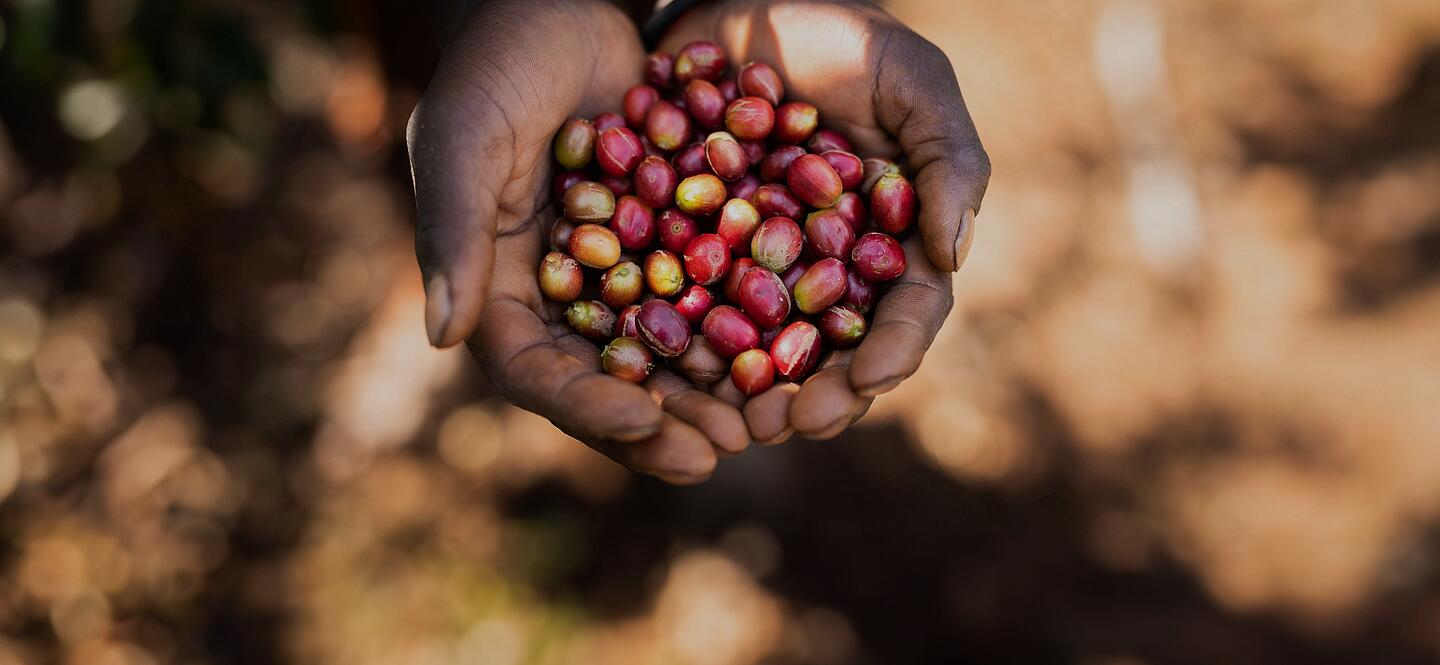- At the origin
- Cultivation
- Processing
- Transport
Key topics for sustainable coffee and tea farming
Environmental:
- Using natural resources, such as the soil, responsibly
- Preserving biodiversity
- Adding further products with organic certification to the coffee and tea range
Social:
- Providing support with social issues, such as access to education and clean drinking water
- Complying with labour and social standards, and respecting human rights
Economic:
- Developing further reliable and trusting partnerships
- Improving farm management and access to the market
- Increasing farmers’ income through better prices for higher quality
- At our
locations - Processing
and packing - Sales
- Consumption
and disposal
Key topics for sustainable processes and responsibility at the sites
Environmental:
- Reducing our carbon footprint, step by step
- Conserving resources with recyclable packaging and sustainable coffee-to-go cups
- Preventing waste with reusable solutions (in vending)
Social and Economic:
- Being a fair and inclusive employer
- Health and safety in the workplace
- Training and development for our employees
- Commitment to local communities

